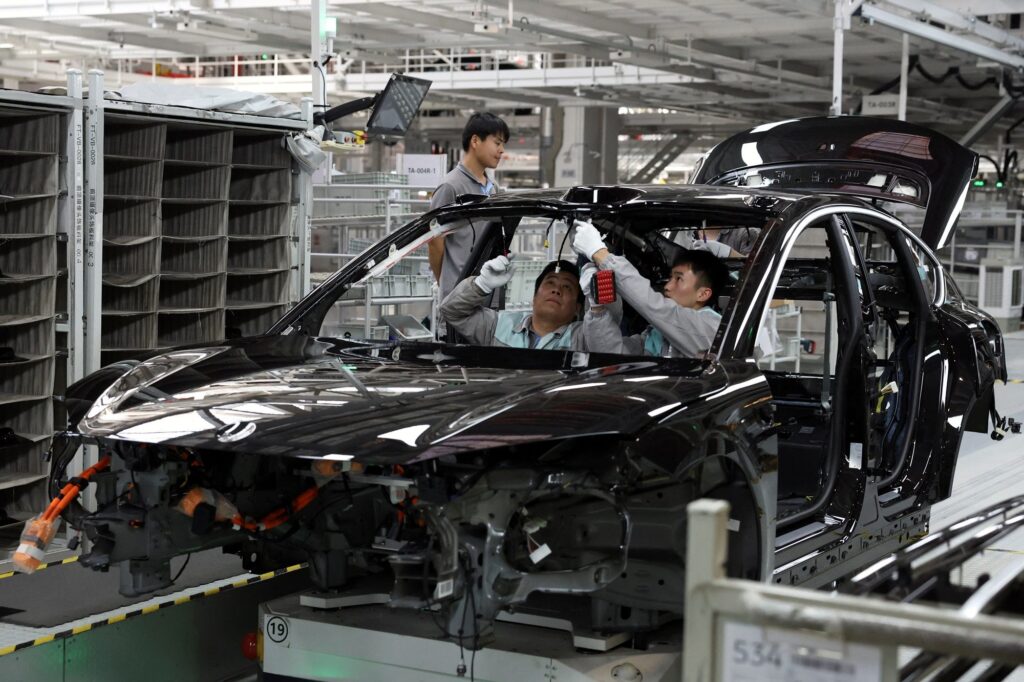For those just landing from another dimension, welcome to our very stable world – where everything is exactly as you left it. The same gravity. The same (always) sunny Middle East. And yes, in our dimension, everyone seems to be driving more Chinese cars nowadays.
But what’s perhaps a little different is that in our dimension, the US government has imposed a 10 percent tariff on all other countries coming into its borders, with an extra-special 145 percent dollop of sauce for China, its largest trading partner.
The theory goes that tariffs will inflict enough economic pain on the exporting nation to make them buy more American goods – at which point the US will lift the tariffs, and normal programming will resume. The entire strategy is as likely to succeed as I am at a tightrope walk between tall buildings.
For ordinary Americans, it’s bound to lead to an increase in vehicle prices. Car manufacturer margins aren’t as fat as many believe – around 5 percent for volume carmakers, and up to 20 percent for luxury brands.
Thus the likes of Italy’s Ferrari are better suited to absorbing costs than a mainstream brand such as Korea’s Kia, which has little choice but to pass those costs on to consumers in the next shipment. After all, these are for-profit companies.
So how will these tariffs affect car prices in the Gulf?
After a week of phone calls to manufacturers – none of whom would go on record – the consensus is clear: not much, if at all.
Most dealers would sooner star in the next Saw sequel than reduce a car’s sticker price
The reasoning is simple. We don’t live in the US, and so we don’t pay tariffs. The majority of our new (and used) vehicles arrive on ships from Asia, Europe and China, with an ever-diminishing contingent from the US.
Here’s a little-known UAE trade secret: it can take up to a year for a vehicle’s price to adjust – and it’s all to do with stock levels.
Most dealers would sooner star in the next Saw sequel than reduce a car’s sticker price.
If a vehicle sits unsold for six months or more, dealers will throw every incentive under the sun, from free insurance to more extended warranties to shift stock, and then order fewer units next quarter. It’s not just greed – cutting new-car prices wreaks havoc on used-car values.
But guess who’s not playing fair in this otherwise balanced scenario? Chinese manufacturers.
Already making major inroads into the UAE market – much to the dismay of established players – they’re thriving in this confusing climate. With full control over their domestic production chains, they can simply slash prices even further.
And UAE consumers? They’ve already shown a strong appetite for Chinese cars, appreciating the combination of value, quality and reliability on offer.
This isn’t a play necessarily open to luxury European and American manufacturers. Some commentators have suggested shifting volume from Europe and the US to this region. However, remember, they only sell a fraction of their line-up here, which is generally the most profitable nameplates.
Small luxury cars don’t sell in the UAE, nor do cars with limited options, which typically comprise most lease deals in the UK.
In any case, homologating a new product – approving a car for sale in a particular market – can take several quarters to complete. This is too slow in a world where tariffs switch on and off like light bulbs, causing global trade to seesaw.
I will make one tiny prediction – consumers aren’t fond of uncertainty. With all the global turmoil, many may see fit to delay that big-ticket (or even little-ticket) purchase for up to a year.
Manufacturers and dealers alike are playing the waiting game, watching the market situation unfold through gritted teeth.
Imthishan Giado is partner at Motoring Middle East
Register now: It’s easy and free
AGBI registered members can access even more of our unique analysis and perspective on business and economics in the Middle East.
Why sign uP
Exclusive weekly email from our editor-in-chief
Personalised weekly emails for your preferred industry sectors
Read and download our insight packed white papers
Access to our mobile app
Prioritised access to live events
Already registered? Sign in
I’ll register later



